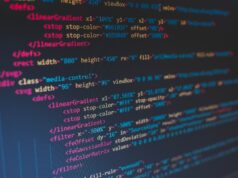The technology that was once new and innovative is now a basic part of our everyday lives.
Things like computers, which used to only be available to large businesses and academic environments that could afford them, are now staples of everyday society that the world has grown to depend on.
Do you sometimes have to help your grandparents or even your parents figure out how to work things that seem really basic to you?
It may seem strange to have to explain something that seems so simple and fundamental. But the tech-dependency that we see today has only been around for the last few decades. And the rate of technological innovation expanded so quickly that many people who didn’t really need it were suddenly left stranded in a tech-dependent world, with little need for the way things once were.
Only decades ago, personal computers, cell phones, and even emails, all the things that we take advantage of in our everyday lives, were nowhere to be found. So to people who didn’t grow up with these kinds of ‘new’ technologies, it didn’t seem like they were necessary to exist in a society. Although, once society itself becomes dependent on technology, people who don’t know how to operate anything, can’t fully participate in the world.
Think about how cell-phones and computers are a basic necessity in most workplaces now. If you don’t know how to do something ‘basic’ like open up a Word document, you won’t be hirable to most companies. So what was once a cool, new, innovative thing has now become a basic necessity.
But this cycle of new becoming necessity doesn’t seem to be stopping any time soon. As technology continues to improve and expand and be incorporated into everyday life, so does our dependency on it. New technologies allow us to build on our foundations, integrating new developments into the structure of our society, upon which even more innovative and advancing technologies can continue the process.
So, it’s important to stay up to date with what’s new in the world. This is often referred to as being technologically literate. But with so many different innovations going on in all fields, it can be confusing trying to figure out what’s going to stick around and what’s not.
With the world full of so many different advancements, how should you know what’s going to be important for the future? What should you start learning now so that you don’t fall behind once it becomes a staple of society, just like computers and phones?
Well, if you’re looking to keep up with today’s tech and need some help, here are 5 areas of technology that you should make sure you understand.
1. Programming
Learning some basic programming and coding skills will take you a long way. And you don’t have to study computer science or be an engineer to need to know how to program. Nowadays, programming will come in handy everywhere, whether you’re helping build a website for someone’s business or learning how to process data.
Programming is also fundamental to many technology-based skills that will become necessary for our growing, technology-dependent world.
2. Data Science
Data science typically refers to the organization and analysis of larger amounts of data. This has become a rising field, and many sectors, from business to scientific research, are starting to reap the benefits of large-scale data processing.
While much of data science is often associated with programming, since people need basic programming skills to be able to process data, it’s much more than that. Being able to build algorithms for processing data takes a lot of skill – programs and algorithms need to be organized and efficient. But it’s not just about processing, data science is also about the analysis. Being able to understand and interpret data is also vital to being a data scientist.
Learning these skills will be worth your while. The fundamental skills used by data scientists will come in handy in nearly all fields. And data science itself is also known for being one of the best careers.
3. Artificial Intelligence and Machine Learning
AI is everywhere. It’s in your phone, in your car, and even shows up in the form of online ads and Netflix suggestions.
AI has shown a lot of promise in a lot of sectors, including AI in healthcare, which is even contributing to coronavirus efforts. It seems that each year, AI and Machine Learning are bringing something new to the table and that this pattern will continue for a long time. As such, it seems that some basic knowledge of AI can open up a lot of opportunities down the road.
Even if you don’t understand everything about A.I. and Machine Learning right away, there are a lot of different books on the market that present it in different ways, so you can find one that helps make AI make a lot more sense to you.
So if you’re interested, you should look into these machine learning books recommended by Cool Things Chicago to start understanding its role in your day to day life.
4. Cloud Computing
Cloud computing mostly refers to storing and accessing data from over the Internet rather than a computer’s own hard drive. This has allowed many people to store a lot more information and access all kinds of applications much more readily.
Many people and businesses have taken advantage of cloud computing since it’s an easy way to improve efficiency while also decreasing costs. As such, it’s becoming a more common thing in all industries.
5. User Interface/User Experience Design
Understanding the user interface and user experience is important, especially in the digital and technologically-dependent world. The success of many products depends not only on whether it works or addresses a problem but also whether or not consumers can easily engage with the product. This is why paying attention to the design of products, both digital and physical, matters.
So, if you’re feeling like you should start learning more about recent technological developments to prepare for an even more technologically-driven world, the five areas of technology above are sure to give you the skillsets you need. Although you don’t have to go out and be an expert in each field, having some basic skills will likely be helpful for you in the future.














